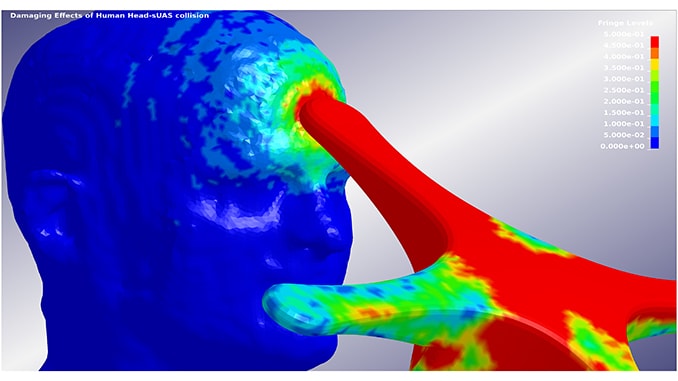Tina Knowles' Missed Mammogram Leads To Breast Cancer Diagnosis: A Wake-Up Call

Table of Contents
The Importance of Regular Mammograms
Mammograms are a vital tool in the early detection of breast cancer. This low-dose X-ray imaging technique allows healthcare professionals to identify subtle abnormalities within breast tissue, often before any noticeable lumps or symptoms appear. Early detection through regular mammograms dramatically increases the chances of successful treatment and significantly improves survival rates. Advances in technology have led to the development of 3D mammograms (also known as tomosynthesis), which provide even clearer images and can detect smaller cancers than traditional 2D mammograms.
- Mammograms can detect cancers too small to feel. Many breast cancers are initially asymptomatic, making regular screenings crucial.
- Early detection significantly improves treatment outcomes. Early-stage breast cancer often has a much higher cure rate than later-stage diagnoses.
- Regular screenings are crucial for women of a certain age and risk factors. The recommended screening schedule varies based on individual risk factors and age.
- Recommended Screening Schedule: The American Cancer Society provides detailed guidelines on recommended screening schedules based on age and risk factors. Consult your doctor for personalized advice. This might involve starting screenings earlier than the standard recommendation or undergoing more frequent screenings.
Understanding Tina Knowles' Experience and its Implications
Tina Knowles' story underscores the potential consequences of delaying or missing mammograms. While specific details of her experience might not be publicly available, the fact that a seemingly healthy individual received a late-stage diagnosis emphasizes the insidious nature of the disease and the importance of preventative care. Delaying mammograms allows cancer time to grow and potentially spread, leading to more complex and invasive treatment options. A late diagnosis also carries a significant emotional and physical toll, impacting quality of life and overall well-being. Open communication with your healthcare provider is essential for addressing concerns, understanding your individual risk, and creating a personalized screening plan.
- Challenges Women Face: Many women struggle to prioritize their health amidst busy lives and competing responsibilities.
- Reasons for Delaying Mammograms: Common reasons for delaying or skipping mammograms include fear of the procedure, cost concerns, and inconvenience. Addressing these anxieties and misconceptions is critical.
- Importance of Open Communication: Discuss your concerns with your doctor to create a screening plan that addresses your individual needs and anxieties.
Risk Factors for Breast Cancer and Who Should Get Screened Earlier
Several factors increase a woman's risk of developing breast cancer. Understanding these risk factors is crucial for determining an appropriate screening schedule. These risk factors include: family history of breast cancer, genetic mutations (like BRCA1 and BRCA2), age (risk increases with age), dense breast tissue, and lifestyle choices such as diet, exercise, and alcohol consumption. Women with a strong family history or genetic predisposition may need more frequent mammograms or earlier screening. A healthcare professional can assess individual risk factors and recommend a personalized screening plan.
- Common Risk Factors: Family history, genetic mutations, age, dense breast tissue, lifestyle choices.
- Family History: A family history of breast cancer significantly increases risk.
- Genetic Testing: Genetic testing can identify specific gene mutations that increase breast cancer risk.
- Personalized Screening: Your doctor can help determine the most appropriate screening schedule based on your unique risk profile.
Overcoming Barriers to Mammogram Access
Access to mammograms shouldn't be a barrier to preventative care. However, several factors can hinder access, including cost, insurance coverage, and geographical limitations. Financial constraints are a significant concern for many women. Fortunately, various resources exist to assist women in accessing affordable mammograms.
- Affordable Mammogram Options: Many organizations offer financial assistance programs or reduced-cost mammograms for low-income women.
- Government Assistance Programs: Explore government-funded programs and initiatives that provide financial assistance for healthcare services.
- Advocating for Access: Support organizations advocating for increased access to affordable and quality healthcare.
Conclusion: A Call to Action: Don't Let a Missed Mammogram Cost You
Tina Knowles' experience serves as a powerful reminder of the importance of regular mammograms in early breast cancer detection. Early detection significantly improves treatment outcomes and increases survival rates. Don't delay your screening – schedule your mammogram today. Prioritize your breast health and take control of your well-being. Contact your doctor to discuss your individual risk factors and create a personalized screening plan. Don't let a missed mammogram cost you your health.

Featured Posts
-
 Optimus Robot Development Tesla Navigates Challenges From Chinas Rare Earth Policies
Apr 24, 2025
Optimus Robot Development Tesla Navigates Challenges From Chinas Rare Earth Policies
Apr 24, 2025 -
 Is Instagrams New Video App A Tik Tok Killer
Apr 24, 2025
Is Instagrams New Video App A Tik Tok Killer
Apr 24, 2025 -
 Faa Study Collision Risks At Las Vegas Airport
Apr 24, 2025
Faa Study Collision Risks At Las Vegas Airport
Apr 24, 2025 -
 Meta Under Trump Zuckerbergs Strategic Challenges
Apr 24, 2025
Meta Under Trump Zuckerbergs Strategic Challenges
Apr 24, 2025 -
 Eu Energy Security Addressing The Russian Gas Spot Market
Apr 24, 2025
Eu Energy Security Addressing The Russian Gas Spot Market
Apr 24, 2025
